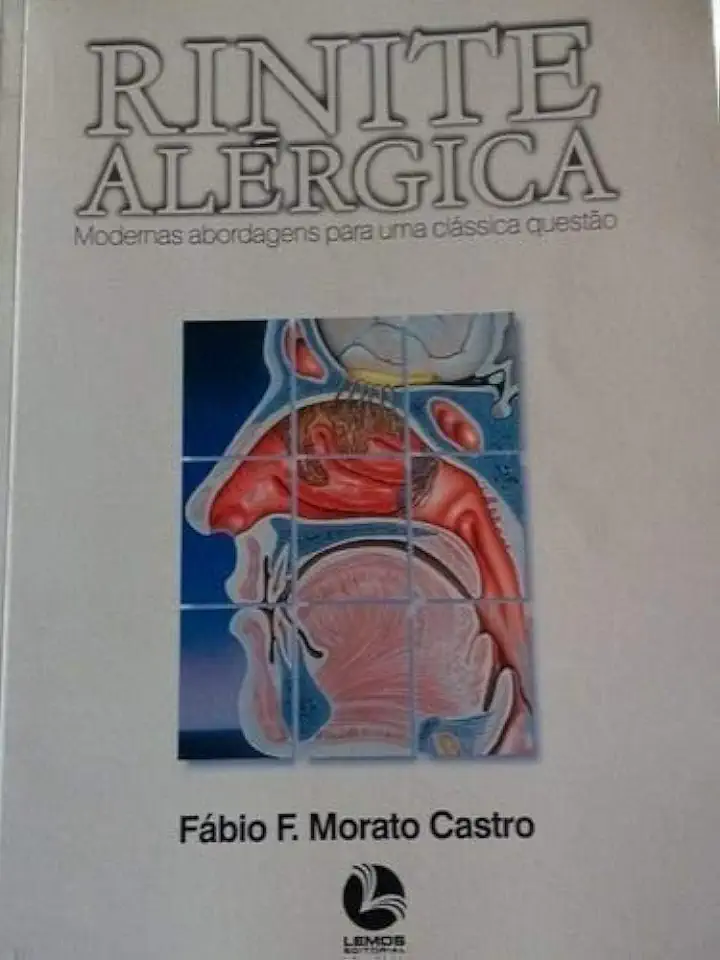
Allergic Rhinitis - Fábio F. Morato Castro
Allergic Rhinitis: A Comprehensive Guide to Diagnosis and Management
Introduction
Allergic rhinitis, commonly known as hay fever, is a prevalent condition affecting millions of individuals worldwide. Characterized by symptoms such as sneezing, nasal congestion, itchy eyes, and a runny nose, allergic rhinitis can significantly impact quality of life and daily activities. In this comprehensive guide, Dr. Fábio F. Morato Castro delves into the intricacies of allergic rhinitis, providing healthcare professionals with an invaluable resource for accurate diagnosis and effective management.
Understanding Allergic Rhinitis
Allergic rhinitis arises from an exaggerated immune response to allergens, such as pollen, dust mites, pet dander, and mold spores. When these allergens come into contact with the nasal mucosa, they trigger the release of histamine and other inflammatory mediators, leading to the characteristic symptoms of allergic rhinitis. Dr. Castro provides a detailed overview of the underlying mechanisms, risk factors, and various types of allergic rhinitis, equipping readers with a thorough understanding of the condition.
Accurate Diagnosis
Accurate diagnosis is crucial for effective management of allergic rhinitis. Dr. Castro outlines the key diagnostic criteria, including a comprehensive history taking, physical examination, and allergy testing. He emphasizes the importance of distinguishing allergic rhinitis from other conditions with similar symptoms, such as non-allergic rhinitis, sinusitis, and nasal polyps. The book offers practical guidance on interpreting allergy test results and selecting the most appropriate diagnostic tools for each patient.
Effective Management Strategies
Dr. Castro presents a comprehensive range of management strategies for allergic rhinitis, tailored to the individual needs of each patient. The book covers both pharmacological and non-pharmacological approaches, including:
Pharmacological therapies: Detailed discussions on various medication classes, such as antihistamines, decongestants, corticosteroids, and leukotriene modifiers, are provided. Dr. Castro offers insights into their mechanisms of action, efficacy, and potential side effects, enabling healthcare professionals to make informed treatment decisions.
Non-pharmacological interventions: The book highlights the importance of allergen avoidance and environmental control measures in reducing allergen exposure and alleviating symptoms. Practical tips on creating an allergen-free environment, including bedroom modifications, air purification, and pet care, are provided.
Immunotherapy: For patients with severe or persistent allergic rhinitis, Dr. Castro explores the role of immunotherapy, including subcutaneous immunotherapy and sublingual immunotherapy. He discusses the mechanisms, benefits, and potential risks of immunotherapy, guiding readers in selecting appropriate candidates and monitoring treatment progress.
Special Considerations
Dr. Castro dedicates chapters to specific patient populations, recognizing the unique challenges and considerations in managing allergic rhinitis in these groups. These include:
Children and adolescents: The book addresses the particularities of allergic rhinitis in children and adolescents, including the impact on growth and development, medication safety, and the importance of patient education.
Pregnant and breastfeeding women: Dr. Castro provides guidance on managing allergic rhinitis during pregnancy and breastfeeding, emphasizing the safety and efficacy of various treatment options while ensuring maternal and fetal well-being.
Comorbid conditions: The book explores the management of allergic rhinitis in individuals with coexisting conditions such as asthma, sinusitis, and sleep apnea, highlighting the importance of a comprehensive approach to care.
Conclusion
"Allergic Rhinitis: A Comprehensive Guide to Diagnosis and Management" is an indispensable resource for healthcare professionals seeking to enhance their understanding and management of allergic rhinitis. Dr. Fábio F. Morato Castro's expertise and meticulous attention to detail make this book a must-have for allergists, otolaryngologists, primary care physicians, and other healthcare providers involved in the care of patients with allergic rhinitis. With its comprehensive coverage, practical guidance, and evidence-based recommendations, this book empowers healthcare professionals to provide optimal care and improve the quality of life for individuals affected by allergic rhinitis.
Enjoyed the summary? Discover all the details and take your reading to the next level — [click here to view the book on Amazon!]